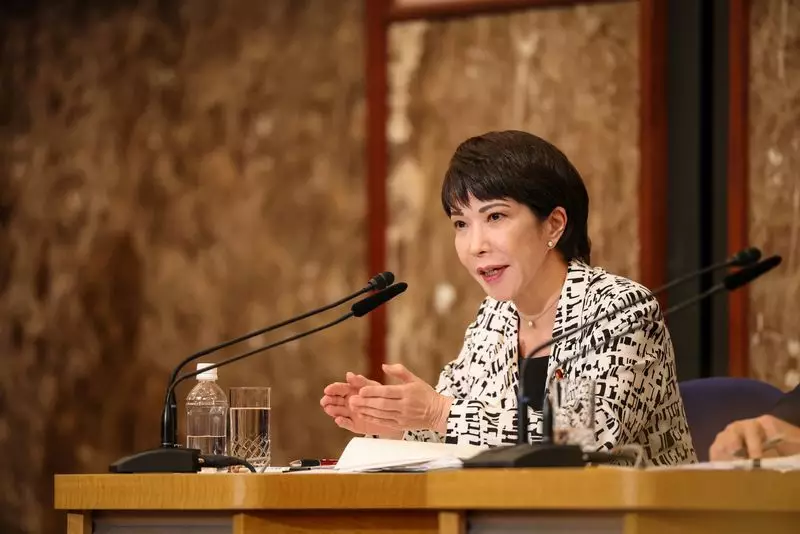Japan currently finds itself at a critical juncture, specifically regarding interest rates and economic policy. As the country navigates the aftermath of the pandemic and strives toward a stable economic recovery, the role of key political figures in shaping monetary policy becomes increasingly significant. Recently, Sanae Takaichi, the Minister responsible for economic security, expressed her staunch belief that maintaining ultra-low interest rates is paramount for cushioning the economy during this unsteady recovery phase. Her comments, made during a press conference involving other candidates for leadership within the ruling Liberal Democratic Party (LDP), highlight both the urgency and complexity of Japan’s economic landscape.
Takaichi’s perspective on interest rates stems from a profound understanding of Japan’s economic fragility. During the conference, she argued that it was premature for the Bank of Japan (BOJ) to embark on interest rate hikes, implicating that the current recovery is neither robust nor secure enough to bear the consequences of increased borrowing costs. This sentiment underscores a critical issue: the balance between stimulating growth and managing rising inflation. With rising living costs affecting many sectors, it becomes pivotal for fiscal and monetary policies to strike a consensual alignment to ensure sustained economic activity.
Takaichi is not alone in her assertions; her views resonate with a broad spectrum of economists and politicians who worry that untimely interest rate rises could stifle the recovery process. The BOJ’s recent decision to increase short-term interest rates to 0.25%—a significant shift from its previous negative rate policy—has incited debate about the ramifications of these moves. Although the Bank of Japan’s Governor Kazuo Ueda has indicated a willingness to tighten monetary policy should inflation stabilize around the 2% target, the concerns raised by political figures like Takaichi cannot be easily dismissed.
Political Implications of Economic Decisions
The political stakes surrounding economic policy are further heightened by the impending leadership election within the LDP, set for September 27. With Prime Minister Fumio Kishida announcing his resignation, the candidate who emerges from this race is bound to inherit the significant challenges facing Japan’s economy. The LDP, characterized by its parliamentary majority, will be instrumental in providing a consolidated approach for dealing with rising public debt and inflation, which the candidates have acknowledged.
While some candidates advocate for expansive fiscal measures to alleviate the financial burden on citizens, others, like Taro Kono, argue for a more prudent approach to fiscal health. Kono’s reluctance to endorse further spending reflects a growing concern over Japan’s public debt, which remains one of the highest among developed economies. The argument that increased expenditures might not necessarily yield positive economic growth is particularly impactful in the present context, stirring discussion on the long-term implications of current fiscal strategies.
Another candidate, Toshimitsu Motegi, has suggested innovative financing options for government spending, proposing that Japan could harness its substantial reserves set aside for currency intervention. This approach, while intriguing, raises questions about the prudent allocation of resources and potential investment returns, as much of these reserves are currently tied to U.S. government bonds.
As Japan seeks to navigate these economic waters, the central bank’s decisions surrounding interest rates will continue to generate both political and public scrutiny. While it’s clear that low interest rates are seen as crucial for facilitating recovery, the question remains: how long can this policy be sustained before it triggers adverse consequences such as inflationary pressures or rising public debt servicing costs?
The intersection of political leadership and economic policy in Japan serves as a critical focal point for understanding the country’s path forward. As leaders like Sanae Takaichi gain prominence in advocating for low interest rates amidst a fragile economic recovery, the LDP will need to engage in a complex debate that balances immediate fiscal responsibilities with long-term economic viability. With looming leadership changes and the ongoing evolution of Japan’s economic strategy, the coming months will be pivotal in determining the country’s overall economic health and stability. In this landscape, clear communication, innovative ideas, and a willingness to adapt will be essential for fostering resilience in Japan’s economy.

